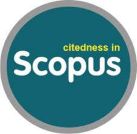The Role of Discipline in Character Education for Elementary School Students in The Digital Era
Abstract
In the era of globalization, the decline of moral values among students has become a serious concern, highlighting the urgent need for character education. This article explores the importance of discipline as a foundational value in shaping the character of elementary school students. This study analyzes relevant literature through a qualitative library research approach, including academic journals, books, and expert perspectives. The findings indicate that discipline is crucial in fostering consistent behavior and moral responsibility in students across spiritual, social, and academic aspects. The article emphasizes the need for sustained reinforcement of disciplinary values through collaboration between schools and families. Strengthening discipline supports academic achievement and contributes to students' long-term integrity and character development. This study contributes to the discourse on moral education by highlighting practical strategies for character formation in digitally influenced educational settings.
Keywords
Full Text:
PDFReferences
Alrabaa, A., Khan, S., & Albar, R. (2022). The impact of excessive screen time on students’ academic performance and behavioral development. International Journal of Educational Research, 115, 101938.
Arifin, Z. (2020). Building discipline through curriculum. Jakarta: Bumi Aksara.
Bandura, A. (1977). Social learning theory. Englewood Cliffs, NJ: Prentice Hall.
Berkowitz, M. W. (2002). The science of character education. In W. Damon (Ed.), Bringing in a new era in character education (pp. 43–63). Hoover Institution Press.
Elias, M. J. (2023). Character matters: Integrating SEL and discipline in schools. Journal of Moral Education, 52(1), 14–28.
Halim, A. (2022). Digital literacy and moral formation in elementary education. Jurnal Pendidikan Karakter, 12(1), 34–47.
Ismiyati, T., & Widodo, A. (2022). The role of teacher discipline in forming student behavior. Jurnal Ilmu Pendidikan, 28(2), 107–115.
Kemendikbud. (2021). Disiplin positif untuk guru. Jakarta: Direktorat Jenderal GTK.
Lickona, T. (1991). Educating for character: How our schools can teach respect and responsibility. New York: Bantam Books.
Mulyani, E., & Kurniawan, R. (2021). Family-based character education: A strategy for building disciplined children. Jurnal Pendidikan Anak, 6(2), 65–74.
Narvaez, D. (2021). Moral education in the digital ecological era. Journal of Moral Education, 50(3), 267–284.
OECD. (2020). The future of education and skills: OECD Learning Compass 2030. Paris: OECD Publishing. https://www.oecd.org/education/2030-project/.
Oktaviani, S., & Prasetyo, R. (2024). Digital distractions and discipline erosion in elementary classrooms. Jurnal Teknologi Pendidikan, 26(1), 21–37.
Ryan, R. M., & Deci, E. L. (2021). The psychology of discipline: Motivation and behavior in learning environments. New York: Academic Press.
Suryanto, B. (2021). Implementing discipline in the classroom: A practical guide for educators. Yogyakarta: Pustaka Pelajar.
Susanto, A. (2019). Etika pendidikan anak usia dini. Jakarta: Prenada Media.
Syamsuddin, H., Maulid, F., & Rahman, A. (2023). Collaborative models of school–parent partnerships in character education. Jurnal Kependidikan, 53(1), 55–72.
Tan, C., & Deneen, C. (2024). Character and citizenship education in multicultural contexts. Asia Pacific Journal of Education, 44(2), 133–150.
UNESCO. (2022). Education 2030: Incheon declaration and framework for Action. Paris: UNESCO. https://unesdoc.unesco.org/ark:/48223/pf0000245656.
Yamin, M. (2023). Pendidikan karakter di era digital. Bandung: Remaja Rosdakarya.
DOI: https://doi.org/10.17509/md.v21i1.88350
Refbacks
- There are currently no refbacks.
.png)
Universitas Pendidikan Indonesia, Purwakarta Campus
Jl. Veteran No. 8. Purkawarta
West Java, Indonesia
Email: metodikdidaktik@upi.edu


























